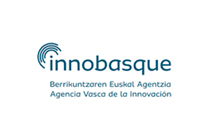 Aurreko ekintzak: Romy Lorenz. Towards a neurobiologically-derived cognitive taxonomy
Aurreko ekintzak: Romy Lorenz. Towards a neurobiologically-derived cognitive taxonomy
Romy Lorenz. Towards a neurobiologically-derived cognitive taxonomy
What: Towards a neurobiologically-derived cognitive taxonomy
Where: BCBL auditorium
Who: Romy Lorenz, PhD. Sir Henry Wellcome Postdoctoral Fellow at the University of Cambridge, Stanford University and the Max Planck Institute for Human Cognitive & Brain Science, UK
When: Tuesday, January 14th at 12 PM.
The classic taxonomy of cognitive processes was developed largely blind to the functional organization of the brain; therefore, classic cognitive tasks tend to tap multiple cognitive processes that involve multiple brain networks. Resolving this many-to-many mapping problem between cognitive tasks and brain networks is practically intractable with standard fMRI methodology as only a small subset of all possible cognitive tasks can be tested. This is problematic, as studying only a fraction from the large space of cognition can result in over-specified inferences about functional-anatomical mappings with a misleadingly narrow function being proposed as the definitive role of a network, concealing the broader role each network may play in cognition.
In this talk, I present an alternative approach that resolves these problems by combining real-time fMRI with a branch of machine learning, Bayesian optimization. Neuroadaptive Bayesian optimization is a powerful strategy to efficiently explore more experimental conditions than is currently possible with standard methodology. I will present results from a study where we used this method to identify the exact cognitive task conditions that optimally dissociate frontoparietal brain networks. Our findings deviate from previous meta-analyses and hypothesized functional labels for these frontoparietal brain networks. Taken together the results form the starting point for a neurobiologically-derived cognitive taxonomy.
In addition, I will touch on the potential of the approach in combination with non-invasive brain stimulation (e.g., tACS) and for accelerated biomarker discovery. Interestingly, Bayesian optimization can also be combined with preregistration to cover exploration, mitigating researcher bias more broadly and improving reproducibility.








